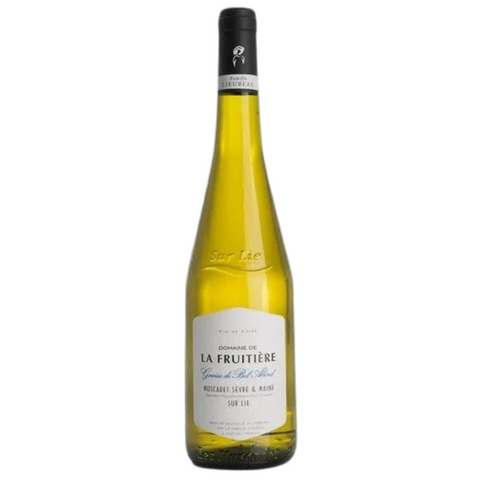
2018 Domaine De La Fruitiere Muscadet De Sevre Et Maine "Goulaine", Loire Valley, France
Lusciously succulent fruit. Almost startling in its reckless extravagance and generosity. Apricots and mango. Grilled peaches, musk melon. The nose is all charming fruit, but it tastes of earth and hot stones and stone-baked bread. So much texture it’s bordering on tannic. Gritty. A fistful of wine that stops short of your chin at the very last moment, and opens wide to offer a peace-offering handful of ripe apricots and honeyed pears. Intensely centred and almost juddering with concentration, the mineral spine of the wine set magnificently within the flesh and richness of the fruit. Defiantly opulent!
ABOUT THIS WINE
40-year-old vines on a 1.5-ha, south-east-facing plot on the Butte de la Roche, serpentinite subsoil, fairly deep sandy soils. The soils are tilled. Hand-picked, whole-bunch pressing, spontaneous fermentation. 24 months on lees in underground vats.
ABOUT THIS PRODUCER
Granite rock was used for centuries to build the massive fortresses that dot the landscape of Muscadet. Its density and structure were rarely breached by arrow, cannonball, or the good ‘ole medieval siege. Because of its density and the fact that it is everywhere in Muscadet, its unclear why anyone would think that this was the place to plant hectares and hectares of vines. That’s what riverbeds are for, right?
Well, the Romans might have gotten a few things wrong in France (see the 1st century BC through the 5th century AD for reference) but they did get something right: they planted a ton of grapevines on this lunar rock of a landscape. Today, this area is called Muscadet and is home to over 8,000 hectares of vines of Melon de Bourgogne.
Domaine de la Fruitière farms over 40 hectares of this and produces both Muscadet Sèvre et Maine as well as Vin de Pays from grapes such as Chardonnay and Sauvignon Blanc. Regardless of the varietal, the vines are planted on rock, and in most cases, sheer cliffs of rock through which the roots have to bury for meters for any hydric source. The vines, and the wines, are fed by water that is awash in wet rock. It’s not a big shock that the wines smell and taste more like rock and minerals than fruit or flowers. Combine this with the cold Atlantic breezes and you’ve got an amazing cool climate, high cut, precise bottle of white wine.
Details:
| Grape(s) | Melon de Bourgogne |
| Farming | Organic |
